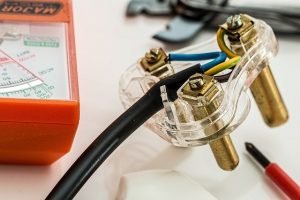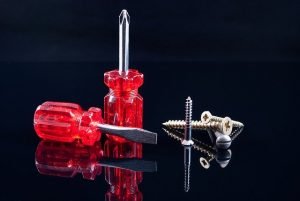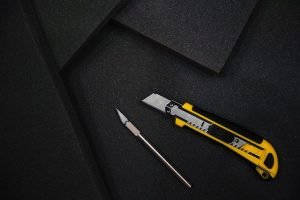
Water may be needed to live, but it can be the bane of the frustrated homeowner who has to deal with plumbing problems. There are not many things more devastating to a house faster than a major plumbing problem unfixed.
If your pipes make squeaking and hammering noises, it may be very simple to fix. What you will have to do is anchor any pipes that are exposed. You may need the assistance of a professional in the case that the pipes are contained within a floor or ceiling.
To keep your pipes from getting frozen, never allow the temperature in your house to drop below freezing and insulate any pipes that are exposed to the elements. Your pipes can freeze if temperatures around it is below 32 degrees. It takes time in order for thawing to occur so you can have water again. However, they could burst, as well – making a huge plumbing bill.
Your plumbing experience can go a lot smoother when you know your tools, as well as how to handle them properly. Read every manual, and use the Internet and library to research the projects that you plan on doing. Be sure to plan before starting a repair, because it can be expensive to fix mistakes.
Septic Tank
You can unclog a toilet by pouring warm water in the bowl from waist level. Once the water level gets low again, repeat the process.
Have your septic tank cleaned every five years or so to keep it working well. Although it could cost a good deal of money to pump out your septic tank, it is nothing compared to what you will have to spend on cleaning up a backup of sewage or repairing or replacing your septic system.
Try to never pour grease, fat, or any oil-based liquids into your drains. When these oils cool, they become hard and create clogs. Grease is of particular concern when there is a disposal unit installed in your drain. It can cause the unit to lose efficiency. Get rid of any fat or oils outside or in the garbage can.
If your toilet happens to be clogged, there is a low level of water in toilet, and the plunger is not working, but be sure to pour it from a height that is waist level or above so you do not flood the bathroom. Repeat this procedure if necessary as the water goes back to a lower level.
Keep the drains in your bathtub working properly by pouring a cup’s worth of baking soda and than a cup’s worth of vinegar directly down your drain every month. Cover the drain up with a plug or old rag, as there will be a chemical reaction in the pipes. Wait for a little while and then allow boiling water to go down the drain. This should help clear your pipes of accumulated hair and soap scum.
Garbage Disposal
Check overflow holes to make sure there’s no clog. The overflow holes are there to make sure the sink doesn’t overfill, which can become a problem if they are blocked. It’s easy to maintain your plumbing, in this regard. When you’re performing periodic checks, simply clear any overflow holes while checking for other potential problems.
Never put your hands in your garbage disposal. Even an un-powered garbage disposal is turned off they can be dangerous.You can look online to get schematics or troubleshooting advice for your garbage disposal.
Install low flush toilets and energy efficient shower heads and faucets to reduce your utility bills. Most of the hot water we use is used while we are showering. Investing just a few bucks in these newer shower heads can yield triple digit annual savings.
Check the floors in your bathroom for soft areas around the floors. You can save money simply by noticing the problem early as possible.
Be sure to regularly clean out the lint trap that is in your dryer. This can prevent various problems, including a fire. Be certain that you thoroughly inspect the trap to ensure there are no tears or holes that may allow lint to travel to the pipes.
Avoid dumping oil, fat, and other oils down your drain. This is primarily true if you are someone who has a garbage disposal; the fat can make the blades go slower and less efficiently. Make certain you dispose of oils away from the sink.
Frozen pipes can cause you to incur expensive plumbing repair bills. Fortunately, such damage is easy to prevent. Insulate your outside pipes. Once the temperature starts to drop, disconnect your hoses after you have drained them out, and make sure the outside faucet is turned off. Doing this can help save a lot of plumbing repair bills.
Schedule all your plumbing work simultaneously.You might be tempted to call the plumber every time you need something fixed, but if you have problems repaired all at once, you can save up money for repairs. Most plumbers charge an hourly rate and a flat rate for the trip: asking a plumber to fix multiple problems in one visit to your home.
If you’re removing clean out plugs and you’re unsuccessful, you can use two methods to do it successfully. The first approach to use is taking a hammer and chisel to see if you can get the fitting loose. The only other thing you can do is chisel through it.
Education and prevention are often the keys when it comes to avoiding plumbing-related problems. Just a little information can make a big difference when it comes to preventing plumbing problems. The owner who does research and prepares for a problem before it happens will more easily repair the problem quickly.
Always thoroughly check out plumbers before you decide to use their services. Some plumbers aren’t experienced or skilled enough to do certain jobs, which makes the problem worse. Always check the reviews on plumbers, and ask those you trust if they have any recommendations.



